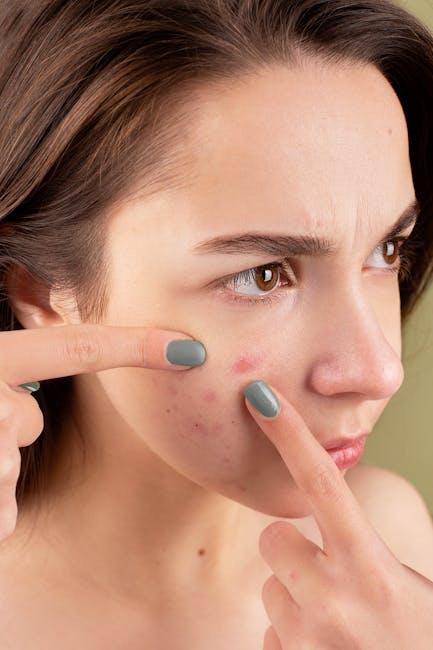Should Teens Use Advanced Skincare Ingredients Like Retinol
In the ever-evolving world of skincare, where serums and elixirs promise the fountain of youth in sleek glass bottles, a question looms large over bathroom counters across the globe: Should teenagers venture into the realm of advanced skincare ingredients, such as retinol? With flawless skin becoming a cultural currency in the age of social media, teens are increasingly drawn to products that promise more than just a clean slate. Yet, as they stand at the crossroads of youthful exuberance and mature skin routines, the decision to embrace these potent ingredients is far from simple. This article delves into the heart of this modern skincare conundrum, exploring the potential benefits and pitfalls of retinol use among teens, and offering a balanced perspective on whether the pursuit of perfect skin should start with the power of retinoids.
Understanding the Basics: What Retinol and Other Advanced Ingredients Do
To grasp the essence of advanced skincare, it’s vital to understand the role of ingredients like retinol. Retinol, a derivative of vitamin A, is renowned for its ability to accelerate skin renewal, reduce acne, and diminish the appearance of fine lines. This powerhouse ingredient works by stimulating collagen production and increasing cell turnover, which can result in smoother, clearer skin.
Besides retinol, other advanced ingredients are making waves in skincare routines. Here are a few noteworthy ones:
- Niacinamide: A form of vitamin B3, niacinamide helps to even out skin tone, reduce inflammation, and improve the skin’s barrier function.
- Hyaluronic Acid: Known for its incredible moisture-retaining properties, this ingredient helps to keep skin hydrated and plump.
- Salicylic Acid: A beta hydroxy acid that penetrates the skin deeply to clear out clogged pores, making it a staple for acne-prone skin.
These ingredients each offer unique benefits, contributing to healthier and more resilient skin. Understanding their functions can help in selecting the right products tailored to individual skin needs.

Navigating the Teen Skincare Landscape: Benefits and Risks of Advanced Ingredients
In the realm of teenage skincare, the allure of advanced ingredients like retinol is undeniable. Retinol, a derivative of vitamin A, is celebrated for its ability to accelerate cell turnover, unclog pores, and even out skin tone. For teenagers grappling with acne or uneven skin texture, this ingredient can offer transformative benefits. However, while the promise of clear, smooth skin is tempting, it’s crucial to approach with caution. Teen skin is often more sensitive and reactive, and retinol’s potent nature can lead to dryness, irritation, or peeling if not introduced gradually.
When considering the integration of advanced ingredients into a teen’s skincare routine, there are several factors to weigh:
- Skin Sensitivity: Teens should perform a patch test and start with a low concentration to gauge their skin’s reaction.
- Sun Protection: Retinol increases skin’s sensitivity to sunlight, making daily sunscreen application non-negotiable.
- Consultation with a Dermatologist: Professional guidance can help determine if advanced ingredients are appropriate for a teen’s specific skin concerns.
The journey through teen skincare is one of balance—embracing the potential benefits of advanced ingredients while being mindful of their inherent risks.

Expert Opinions: Dermatologists Weigh In on Retinol for Adolescents
In the quest for clearer skin, many teenagers and their parents are considering the benefits of incorporating advanced skincare ingredients, such as retinol, into their daily routines. To better understand this trend, we turned to dermatologists for their insights.
Dr. Emily Carter, a board-certified dermatologist, highlights the potential benefits:
- Retinol can help in reducing acne breakouts.
- It assists in managing early signs of aging, even for teens.
However, she warns that it’s essential for adolescents to use it under professional guidance to avoid irritation.
Dr. Alan Greene, renowned for his expertise in pediatric dermatology, shares a more cautious approach:
- Teen skin is often more sensitive, making lower concentrations preferable.
- He advises starting with a retinol product specifically formulated for young skin.
Greene emphasizes that every teen’s skin is unique, and a personalized regimen is crucial for optimal results.

Crafting a Safe Skincare Routine: Recommendations for Teen Skin
When it comes to developing a skincare routine for teenagers, simplicity and safety are key. The adolescent years are often accompanied by hormonal changes that can make the skin particularly sensitive and reactive. Therefore, it’s crucial to prioritize gentle products that focus on hydration, cleansing, and protection. Start with a basic routine that includes a mild cleanser, a lightweight moisturizer, and sunscreen with at least SPF 30. These essentials help maintain skin health without overwhelming it.
For those considering advanced skincare ingredients, it’s important to proceed with caution. While ingredients like retinol are renowned for their anti-aging and acne-fighting properties, they can be too potent for young, developing skin. Instead, consider alternatives such as:
- Niacinamide: Known for reducing inflammation and redness, it can be a gentler option for controlling acne.
- Salicylic Acid: Effective in treating blackheads and whiteheads, this ingredient is often better tolerated by teenage skin.
- Hyaluronic Acid: A fantastic hydrator that can help keep the skin plump and moisturized without causing irritation.
Always patch test new products and introduce them gradually to avoid any adverse reactions. Consulting with a dermatologist can provide personalized advice and ensure the chosen ingredients are suitable for young skin.
In Summary
In the ever-evolving world of skincare, the question of whether teens should incorporate advanced ingredients like retinol into their routines remains a topic of lively debate. As we navigate this nuanced landscape, it’s clear that understanding one’s unique skin needs and seeking professional guidance are paramount. Whether embracing the potential benefits of retinol or opting for a simpler regimen, the journey to healthy skin is as individual as the teens embarking upon it. Ultimately, the choice lies in informed decisions, mindful experimentation, and a balanced approach to skincare. As trends come and go, the essence of skincare remains—nurturing one’s skin with care and respect.


